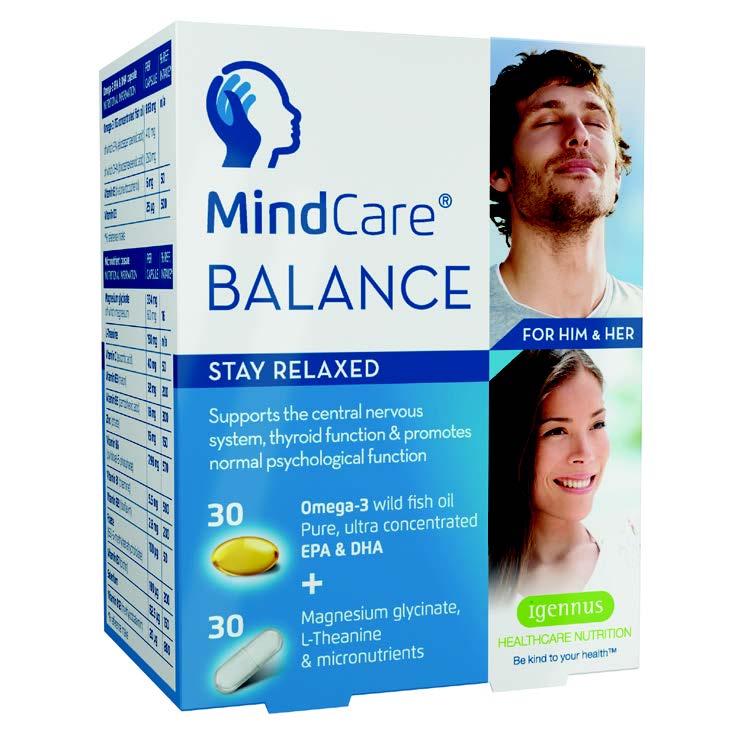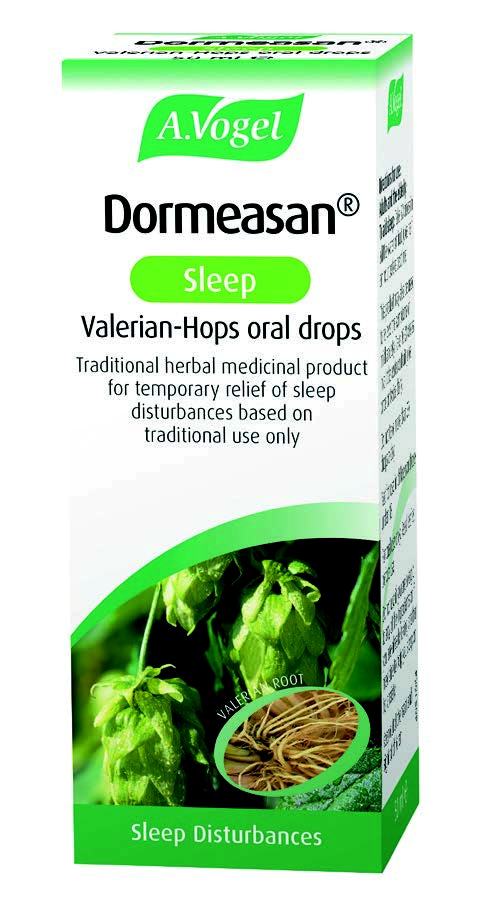Ever find yourself inwardly tutting at the way a colleague sweats the small stuff, or frustrated by a loved one’s inability to step away from toxic situations? Stress is so apparent in others – you’ll no doubt have counselled someone in your life about making a positive change – but are you as good at spotting the signs in yourself? An estimated 70 to 90 percent of GP appointments address stress-related conditions, so it’s time to take it seriously.
Eczema
“Stress can affect our bodies on what we call a multi-system level, which means it can affect any body system,” says GP and dermatology specialist Dr Jane Leonard (drjaneleonard.co.uk). Jane points out that the effects of stress are complex, and can trigger a pre-existing condition or cause the start of new problems. “Classic skin problems are eczema, acne and psoriasis. Unfortunately, there’s no direct link that proves why stress affects our skin on a cellular level, it’s just known as one of the multi-factual elements in conditions such as eczema.”
Migraines
Living under the threat of migraines is itself stressful – scientists have indeed proven that an increase in stress can raise the number of tension headaches experienced. But what of that bigger event, a full migraine, which can include not only a chronic headache but also visual auras? Research into the link between stress and prevalence of migraine suggests it may actually be a moment of relaxation amid heightened stress that triggers the migraine itself. Researchers have noted a nearly fivefold increase in migraines in the six hours that followed a period of high stress. Evidence, if it were needed, that mitigating a stressful lifestyle with windows of calm is no substitute to addressing the long-term picture.
IBS
The links between IBS and stress are well established, with the IBS Network advocating a range of relaxation therapies – including yoga, reflexology, hypnotherapy and aromatherapy – to combat symptoms. In fact, according to the Network, many sufferers find their symptoms very accurately reflect their psychological state, with the bowels acting as a kind of ‘emotional barometer’. The condition itself is notoriously hard to pinpoint, with sufferers experiencing a wide range of roughly grouped symptoms.
In the absence of a diagnostic test, considering the link between emotional state and eating is a good way forward. “If you eat in a stressed state, with ‘fight or flight’ mode switched on, then the food you’ve lovingly prepared is wasted as you won’t be in a state to digest all of those amazing nutrients,” notes health coach Olly Leicester (ollyleicester.co.uk). “A trick to turn on your parasympathetic nervous system during meals is to slow your breathing down before beginning to eat. Breathe in for four, hold for five, exhale for seven. Anyone can do this and it’s an easy way to improve your digestion.”
Insomnia
Can’t ‘switch off’? Wide awake worrying? It can feel that sleeplessness is simply your busy brain trying to untangle a problem, but recent research from Japan suggest a more complex, unconscious effect. Researchers found our bodies deal more effectively with stress in the morning than in the evening, suggesting that those small stress triggers we experience while winding down after a long day take a higher toll than those that hit in the early part of the day.
Eliminating even small stress triggers contributes to better ‘sleep hygiene’. A simple solution might keep all evening communications to stress-busting face-to-face interactions. “Humans are social creatures and we thrive when we interact with others,” says Soren Kenner, co-author of Offline: Free Your Mind From Smartphone and Social Media Stress (£8.64, amazon.co.uk). “What we get from social media is not real social interaction – taking a break from it gives you a chance to actually be sociable.”
Reduced fertility
Here’s a catch-22 – trying to conceive is stressful yet, as everyone loves to point out, being relaxed can help. Irritatingly, research published last year suggests that the ill effects of stress disproportionately affect the fertility of women, with a 13 percent drop encountered by females suffering stress. “Stress can dysregulate your body’s hormone production, making your menstrual cycle less reliable,” says Dr Victoria Walker, leading fertility expert at Institut Marques (institutomarques.com/en). “It can also contribute to a loss of libido, which in turn can reduce the amount of sexual intercourse a couple has, lowering their chances of conceiving.”
Menopause
“Stress can have a huge effect on menopause symptoms,” says health coach Mary Nash (bloomwithmary.co.uk). “This is because it creates a ‘cortisol steal’, whereby the body is pumped in to making stress hormones, and switches off the rapidly fading sex hormones of oestrogen and progesterone that our mid-life bodies so desperately need. This is a significant factor in symptoms like hot flushes, mood swings, brain fog and anxiety.”
Gum disease
“There are a few factors that link stress to bleeding gums and the onset of gum disease,” says dentist and bacteriologist Dr Harold Katz (therabreath.com). “When the body is under stress it produces elevated amounts of the hormone cortisol, which acts as an antiinflammatory agent. When cortisol is produced peripherally in the gums, it stimulates mast cells to produce more proteins, simultaneously increasing inflammation and the progression of gum disease.”
This is bad news for your mouth, given that gum disease can actually impact on your jawbone and cause teeth to become loose. If you’re fire-fighting your way through life, there’s a double-whammy effect on your oral health. “Individuals with high stress levels tend to adopt bad oral hygiene and lifestyle habits, and this in turn can have a negative impact on their oral health. If gum disease isn’t in advanced stages, good oral hygiene habits can reverse it, so it’s essential to adopt a robust regimen coupled with regular trips to your dentist who will be able to offer sound advice on correct brushing and flossing techniques.”
Stress less today!
Feeling stressed? Psychotherapist and hypnotherapist Nick Davies (ndhypnotherapy.com) shares some quick fixes:
- As soon as you recognise the symptoms of a panic attack, make your body go as loose, limp and floppy as possible and relax every muscle from the top of your head down to the tips of your toes. Ignore every irrational thought and focus on this relaxation.
- Instead of breathing in a way that expands your chest and lifts your shoulders, push your stomach out to breathe all the way down to the bottom of your lungs. Hold the breath, then dump the breath in a way that’s like letting out a loud sigh. Continue for 10 breaths.
- Following the above breathing, focus on a single point on the wall until your peripheral vision begins to blur. Keeping your eyes open or closed, slowly repeat the following phrases five times each in your mind: “I am calm and relaxed”; “I am safe and well”; “I’ve got through this before and will again”.
Stress-busting buys
-
 BetterYou Magnesium Sleep Lotion £9.95, betteryou.com
BetterYou Magnesium Sleep Lotion £9.95, betteryou.com -
 MindCare Balance Stay Relaxed £17.99, shop.igennus.com
MindCare Balance Stay Relaxed £17.99, shop.igennus.com -
 A. Vogel Dormeasan Sleep £4.50, available from independent health stores, Boots and Holland & Barrett
A. Vogel Dormeasan Sleep £4.50, available from independent health stores, Boots and Holland & Barrett






















